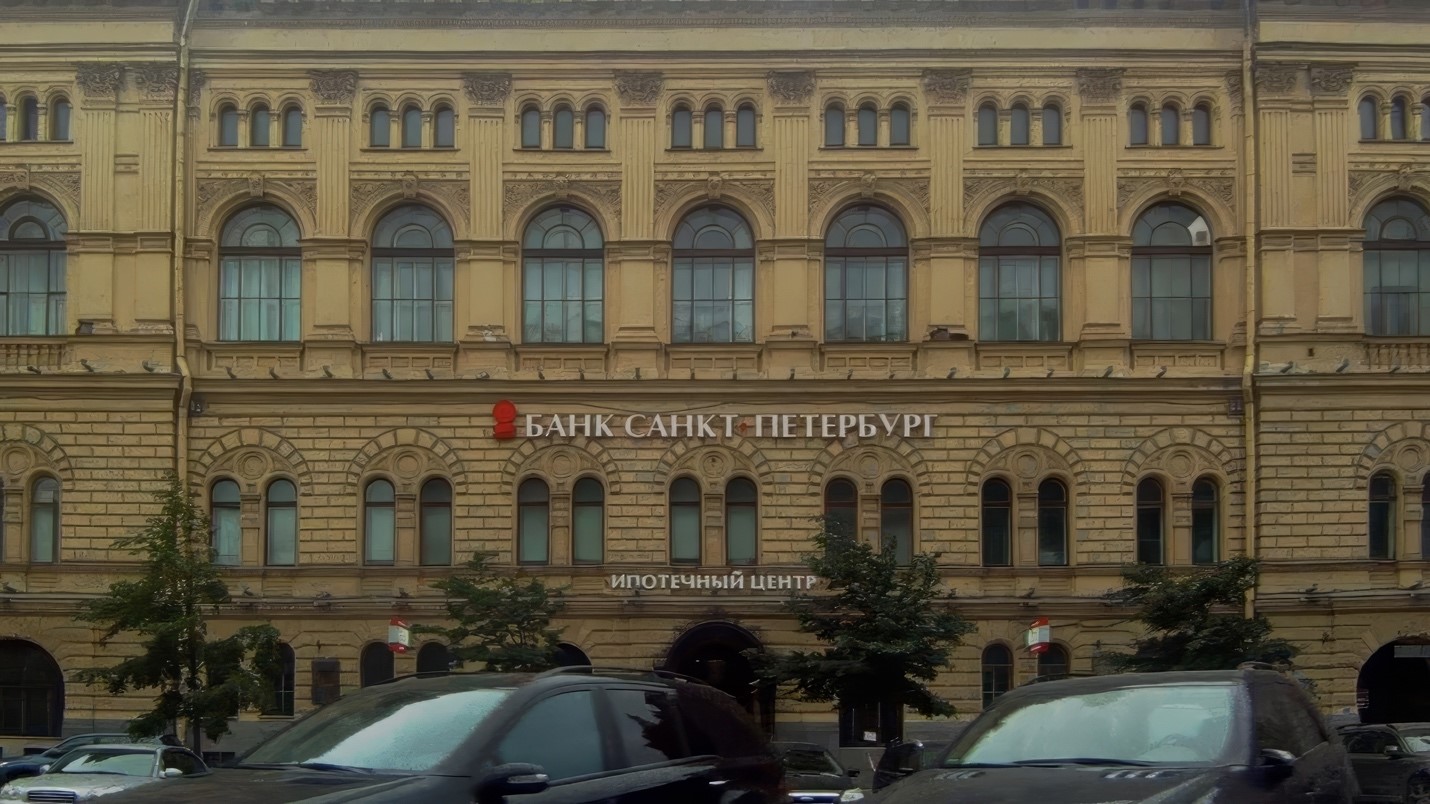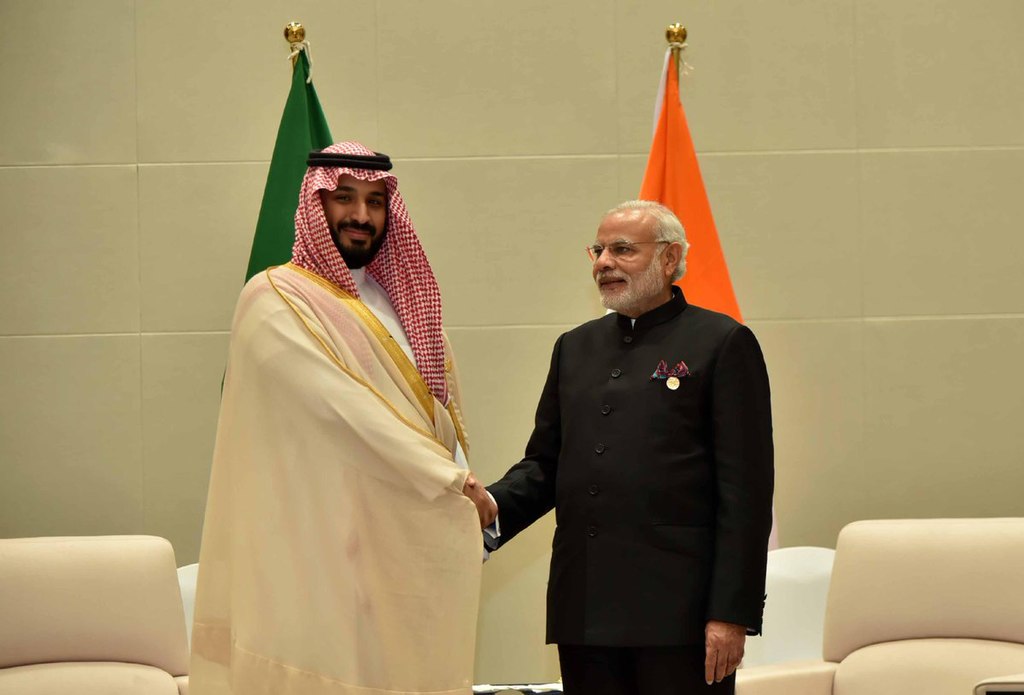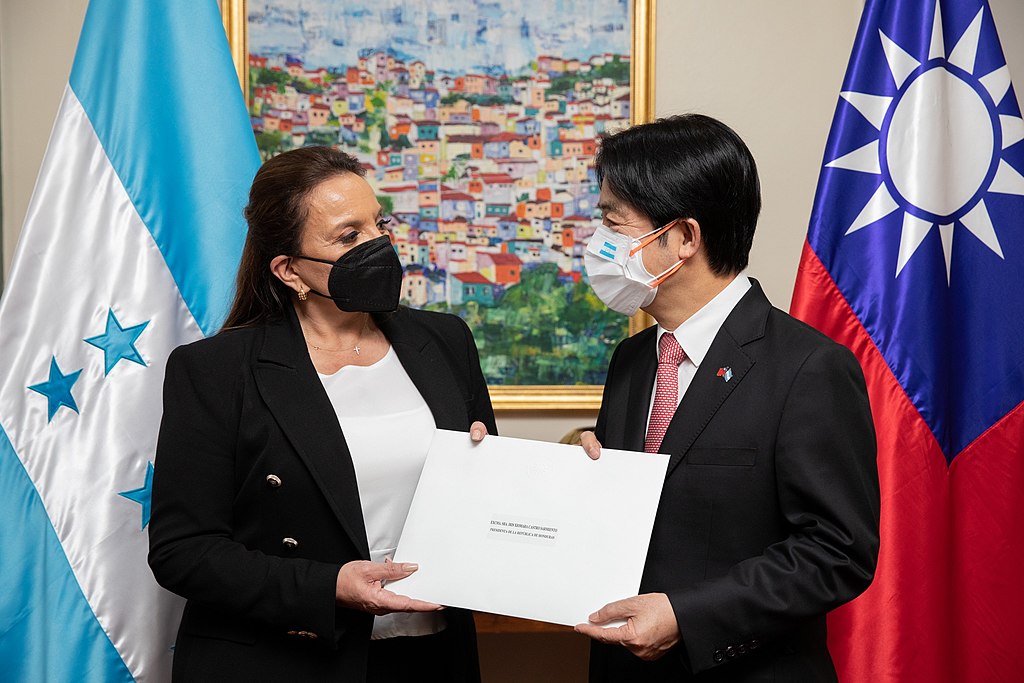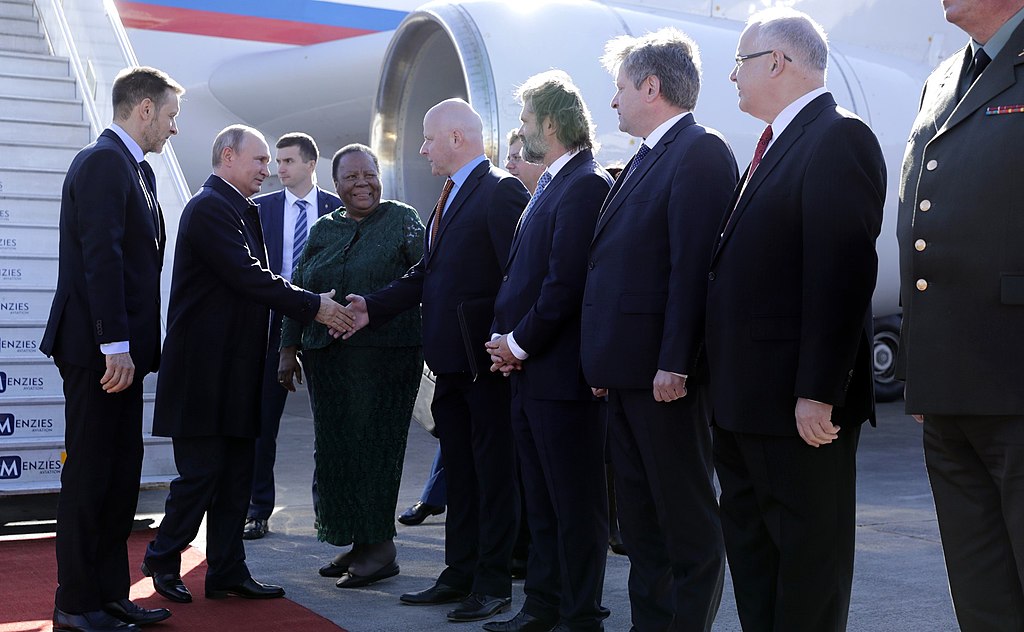
Bank Saint Petersburg sanctioned by the U.S. and UK on 24 February, one of many Russian banks sanctioned in the days following Russia’s invasion of Ukraine.
“The document contains a list of friendly and neutral states whose credit institutions and brokers will be able to trade on the Russian market for currencies and asset liabilities.”
Russia seeks to make strategic advances in the economic war in which it finds itself as it struggles to gain an operational advantage on the battlefield in Ukraine. Russian moves to end the global dominance of the U.S. dollar have taken on new urgency as the war in Ukraine has exposed how reliant Russia and other nations are on the dollar for their national economies and settlement of global financial transactions.[i] According to the excerpted article from Russian financial news source RI-Centr.ru, Russian Prime Minister Mikhail Mishustin recently signed a resolution with “more than 30 friendly or neutral states,” including “all Central Asian states” to explore conducting financial settlements in national currencies rather than the dollar. The article acknowledged that the moves away from the dollar contained risks for banks and other financial institutions.
The article from the Russian news outlet политический калейдоскоп (Political Kaleidoscope) noted Indonesia, the world’s seventh-largest economy and fourth-most populous country, has also begun the process of transitioning from the dollar for global trade and financial transactions. According to the article, Jakarta has set up a “National Task Force that will support financial transactions in local currencies.” The article concludes by noting that “Indonesia has become the latest ‘heavyweight’ in the company of fighters against the dominance of the U.S. dollar in the global financial system” and that China, India, and Russia have agreed to switch to national currencies for mutual payments. Finally, the article noted that the BRICS nations[ii] are pursuing a dollar alternative and that Russian President Putin recently emphasized that “de-dollarization is an irreversible process that is gaining inertia.” While the U.S. dollar is still the preferred safe-haven currency worldwide, Russia’s (and China’s) efforts to reduce its dollar dependence would give Russia increased flexibility to conduct trade, especially for commodities such as oil—a tool for financing the war in Ukraine and potential wars elsewhere—without the threat of adverse financial conditions imposed on its economy by a dominant U.S. dollar.[iii]
Sources:
“УТВЕРЖДЁН СПИСОК СТРАН — ПАРТНЁРОВ ПО ВАЛЮТНОЙ ТОРГОВЛЕ (LIST OF CURRENCY TRADING PARTNERS HAS BEEN APPROVED),” RI-Centr.ru (Russian financial news outlet), 21 September 2023. https://ia-centr.ru/publications/utverzhdyen-spisok-stran-partnyerov-po-valyutnoy-torgovle/?utm_source=finobzor.ru
The corresponding order was signed by Russian Prime Minister Mikhail Mishustin.
The document contains a list of friendly and neutral states whose credit institutions and brokers will be able to trade on the Russian market for currencies and asset liabilities.
There are more than 30 countries on the list, including all Central Asian states. Approval of the list is part of the process of transition to settlements in national currencies.
The approval of the resolution was announced in July 2023. At that time, the list of partner states included 44 countries. In the current message on the government website, 32 countries are mentioned. Israel and Georgia, which were previously named as included in the list, are not among them. This is not the final version of the document.
Russia and the countries of the post-Soviet space are progressively engaged in financial integration. Thus, on April 28, the Eurasian Economic Union (EAEU) published a draft agreement that should simplify the admission of brokers from the union states to the exchanges of the participating countries. In addition, at the end of August, EEC members signed an agreement on bank guarantees in the field of public procurement.
Experts note that the proposed mechanisms do not yet fully solve the problem of risks for banks and other financial players.
Sergey Manukov, “К дедолларизации подключилась одна из крупнейших экономик планеты (One of the largest economies on the planet has joined dedollarization),” Political Kaleidoscope (политический калейдоскоп), 21 September 2023. https://k-politika.ru/k-dedollarizacii-podklyuchilas-odna-iz-krupnejshix-ekonomik-planety/?utm_source=finobzor.ru
There are new additions to the camp of fighters against the dominance of the dollar in the global financial system and trade. Moreover, it is very significant and noticeable. Indonesia has joined the dedollarization process. This, by the way, is the seventh economy in the world, which, without a doubt, in one or two decades will rise another couple of positions in the ranking. In addition, Indonesia ranks fourth in the world in terms of population – approx. 280 million people.
Jakarta has created a National Task Force that will support financial transactions in local currencies (LCT). In Indonesia, remember, this is the Indonesian rupiah. In a statement, the head of the Indonesian central bank, Bank Indonesia, Perry Warjiyo, said that the transition to national currencies in settlements and trade with friendly countries will help not only strengthen the Indonesian financial market, but also stabilize the local rupiah.
“Increasing local currency transactions should help export-import activities, investments and cross-border payment transactions, including QRIS (Indonesia’s domestic settlement standard),” explains a top Indonesian banker.
Indonesia has become the latest “heavyweight” in the company of fighters against the dominance of the US dollar in the global financial system, consisting of China, India and Russia. Beijing, New Delhi and Moscow agreed to switch to national currencies for mutual payments. In addition, BRICS has not abandoned plans to introduce, if not a single currency of the organization, then at least a single payment mechanism. Indonesia has not yet joined BRICS, but its President Joko Widodo attended the group’s recent summit in South Africa as a guest. Speaking at the summit via video link, Russian President Vladimir Putin emphasized that dedollarization is an irreversible process that is gaining inertia.
Joko Widodo, by the way, not long ago called on local authorities to abandon foreign payment systems and switch to credit cards from local banks. True, he spoke not so much about dedollarization as about the possibility of banning such popular cards as Visa and Mastercard, following the example of what they did with Russia.
In the United States, the plans of China, Russia, India and other developing countries to deprive the dollar of the unofficial title of world currency are, at least outwardly, calmly and they claim that nothing can threaten the “green” in the foreseeable future, at least for several decades.Recently, by the way, Zimbabwe announced its desire to join the bank created by the BRICS countries. As a result, rumors spread that this southern African country also wants to join the de-dollarization. However, according to Zimbabwe’s former finance minister, abandoning the dollar could easily lead to economic disaster.
Notes:
[i] For a Russian perspective on the dollar shortly after its invasion of Ukraine see: Ilya Polonsky, “Россия способна поставить точку в эпохе гегемонии доллара (Russia is able to put an end to the era of dollar hegemony),” Economic Enrichment (экономическое обоэрение) (Russian financial news outlet), 18 March 2022. https://finobzor.ru/116153-rossija-sposobna-postavit-tochku-v-jepohe-gegemonii-dollara.html
[ii] The BRICS nations are Brazil, Russia, India, China, and South Africa. Coined in 2001, the term was originally BRIC and remained that way until the addition of South in 2010. Argentina, Egypt, Ethiopia, Saudi Arabia, and the United Arab Emirates are set to join the bloc and receive full membership on 1 January 2024.
[iii] Historically, when the cost of oil rises the dollar has depreciated. However, since 2022, roughly correlating with Russia’s invasion of Ukraine, the price of oil and the value of the dollar have moved in tandem. Therefore, high energy costs and a rising dollar have put additional pressure on economies like Russia’s and China’s. For an analysis of what is fueling the new connection between commodity prices and the strength of the U.S. dollar see: Boris Hofmann, Deniz Igan, and Daniel Rees, “The Changing Nexus Between Commodity Prices and the Dollar: Causes and Implications,” BIS Bulletin No. 74, (Switzerland based Bank for International Settlements), 13 April 2023. https://www.bis.org/publ/bisbull74.pdf
Image Information:
Image: Bank Saint Petersburg sanctioned by the U.S. and UK on 24 February, one of many Russian banks sanctioned in the days following Russia’s invasion of Ukraine.
Source: Combat Films and Research, Inc.
Attribution: Combat Films and Research, Inc. By permission



